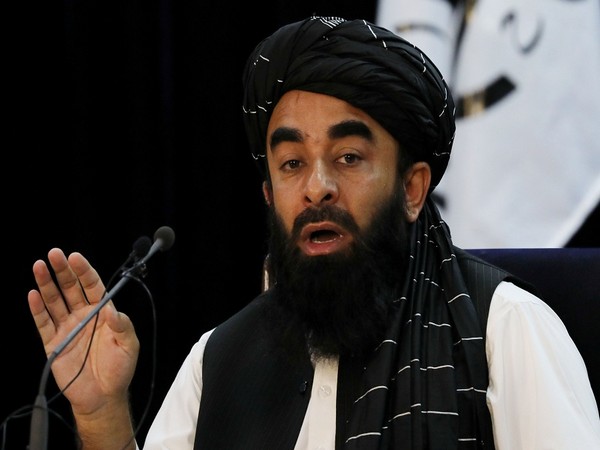
New Delhi: Information indicates that the Taliban have initiated discussions with the Indian government over assuming control of the Afghan embassy in New Delhi.
The Taliban government has reportedly submitted a new list of proposed diplomats to Indian authorities, including Najib Shaheen, the son of Suhail Shaheen, the Taliban’s representative in Doha. If New Delhi reaches an arrangement allowing the representatives of the Taliban, it would be a significant step in formally establishing diplomatic relations with the Islamic Emirate of Afghanistan.
Even after the fall of Kabul, the embassy of the former internationally-recognised regime continued to operate in New Delhi and its consulates in Mumbai and Hyderabad. Some Afghan diplomats relocated to third countries, but those remaining in India maintained a modicum of diplomatic functions.
The embassy ceased operations in late November 2024. Alluding to pressure from both the Taliban and the Indian government, the former staffers stated, "Unfortunately, after eight weeks of waiting, visa extensions for diplomats and changes in the Indian government’s stance did not materialise. Continued pressure from both the Taliban and the Indian government to step aside from diplomatic duties left the embassy with a difficult choice."
After the August 2021 takeover, India adopted a pragmatic approach in its engagement with the Islamic Emirate of Afghanistan. Upon the Taliban's invitation, the Indian Ambassador to Qatar met the Head of the Taliban’s Political Office in Doha in September, ostensibly to discuss evacuation details, But it marked a significant shift both in terms of the Taliban’s approach and India’s position.
India's nuanced approach towards the Taliban is characterised by a careful balancing act of countering Pakistan's influence while addressing its security concerns and fostering a stable relationship with the Islamic Emirate.
While the Indian embassy staff in Kabul returned to India, in June 2022, an Indian technical team was stationed at the embassy, to ensure the continuity of nearly 500 development projects across Afghanistan in various sectors and humanitarian assistance. The initial contact was made when Indian Ambassador Deepak Mittal met with Taliban leaders in Doha shortly after the Taliban seized power. Subsequent low-key engagements included meetings between Joint Secretary J.P. Singh and Taliban leaders in 2022.
Given India’s heightened focus on humanitarian aid and educational initiatives in Afghanistan, the Taliban-led Afghan government has been making diplomatic overtures to India and has expressed the desire to enhance diplomatic relations. By engaging with India, the Taliban seeks to gain strategic advantages and promote stability and development in Afghanistan.
The functioning of the Afghan Embassy in New Delhi has been a notable point of discussion between the two governments. In March 2023, diplomats of the Taliban’s Foreign Ministry participated in a training program organised by India. In addition, the embassy in the capital, Afghanistan maintains two consulates in India, located in Mumbai and Hyderabad.
In November 2024, India accepted the appointment of Ikrarmuddin Kamil, who had worked in the Taliban government's Ministry of Foreign Affairs as second secretary for the Afghanistan consulate in Mumbai. Soon after, Deputy Political Minister of Foreign Affairs, Sher Mohammad Abbas Stanikzai announced the Islamic Emirate’s intention to open an Afghan embassy in India, posting "Afghanistan is dedicated to strengthening its ties with India" on platform X.
The latest talks on reopening the Afghan embassy in New Delhi follow close on the heels of the meeting between Afghanistan’s acting Foreign Minister Mawlawi Amir Khan Muttaqi and Indian Foreign Secretary Vikram Misri, on January 8 this year in Dubai.
India's engagement with the Taliban is driven by concerns about Afghanistan’s instability, the potential for the country to become a terrorist haven for Pakistan-based terror groups like Lashkar-e-Taiba (LeT) and Jaish-e-Mohammed (JeM), and the particularly destabilising presence of ISKP (Islamic State Khorasan Province). These factors compel India to pragmatically engage with the Taliban to safeguard its interests and promote regional stability. Trade between India and Afghanistan remains active, with significant activity through the Chabahar port, indicating ongoing economic engagement.
In its engagements with Indian diplomats and officials, the Taliban government has assured India of a balanced economically oriented foreign policy that considers India's terrorism concerns. The discussions have included a range of issues from humanitarian assistance to sports cooperation, particularly cricket. The Shaheed Vijay Singh Pathik Sports Complex in Greater Noida within India’s National Capital Region serves as the Afghanistan cricket team's home ground. This support has been instrumental in helping the Afghan cricket team improve and gain international recognition.
The decision to reopen the embassy would be more than a strategic move or an official recognition of the Taliban government. It would be a significant step towards providing essential services and addressing the needs of Afghan citizens and students facing bureaucratic hurdles and concerns regarding their legal status. The move would underscore India's commitment to fostering stronger ties with Afghanistan and offering support during challenging times while acknowledging the dynamics of Afghan politics.